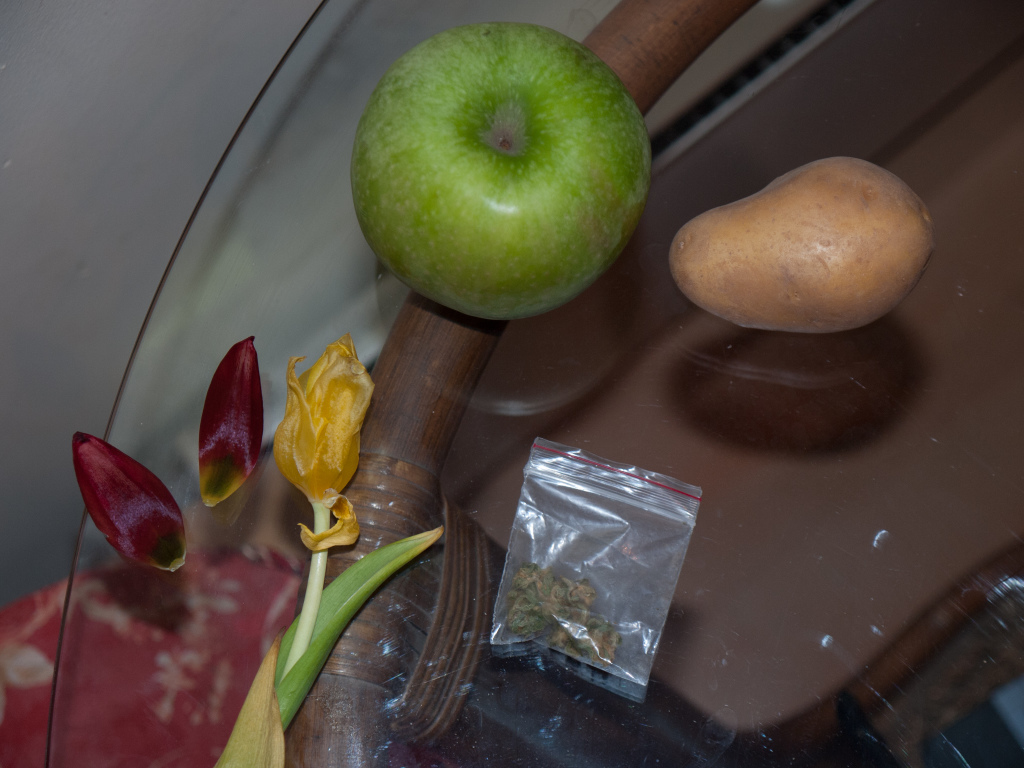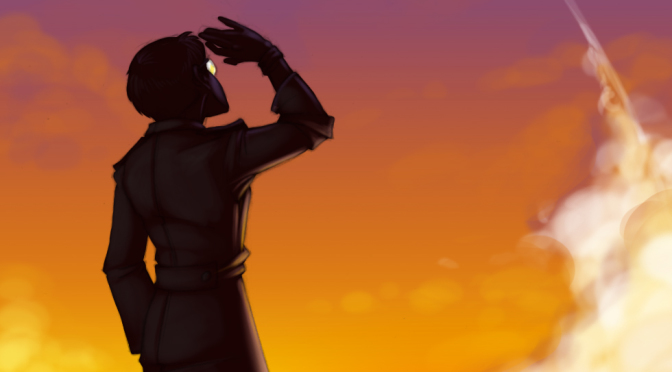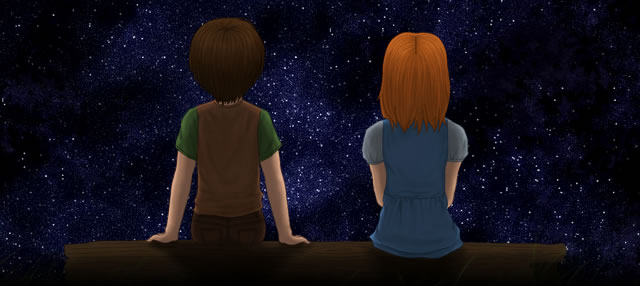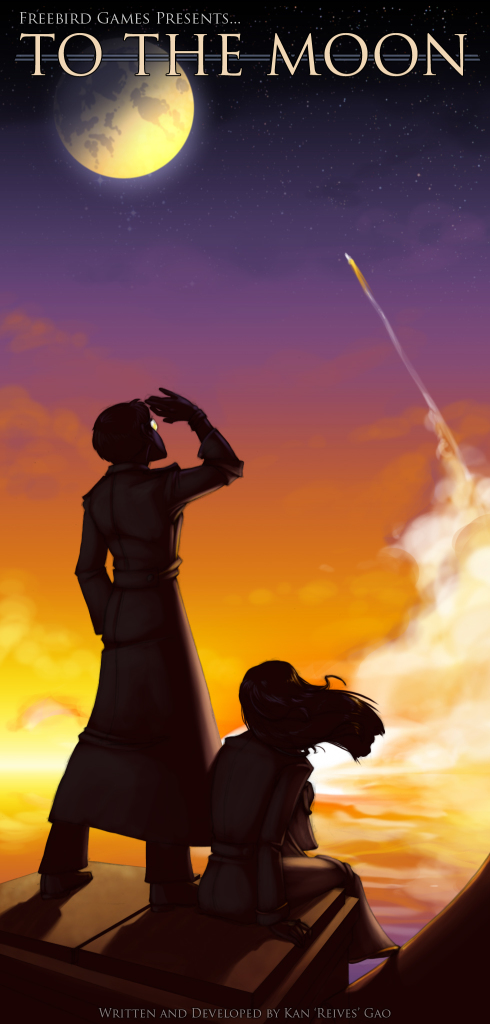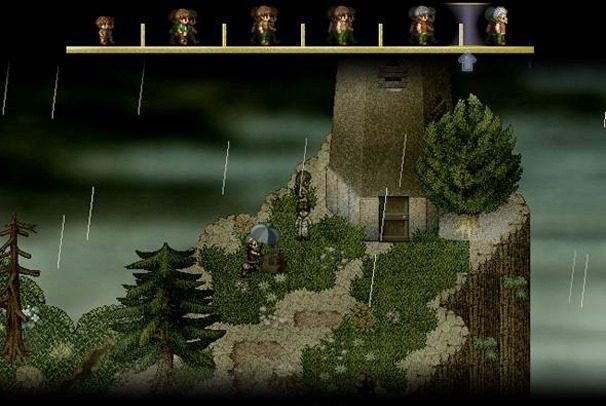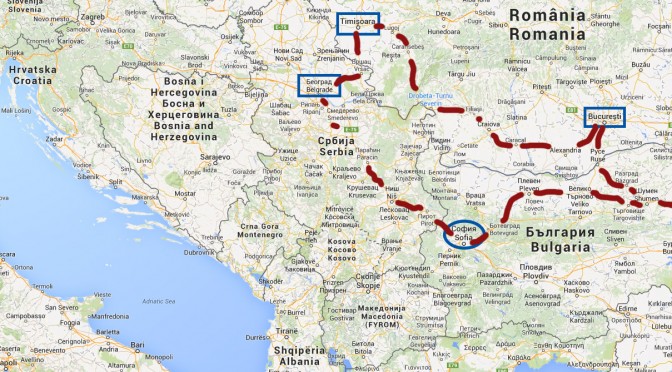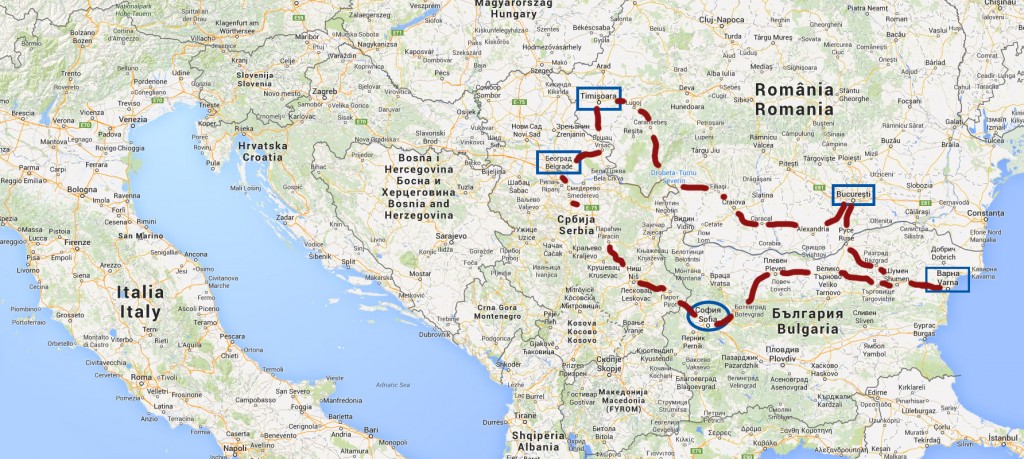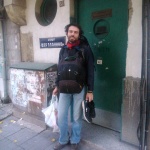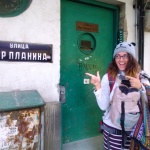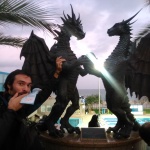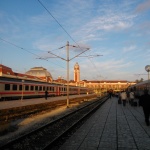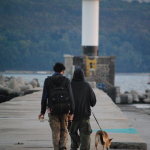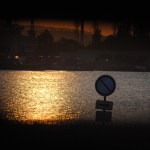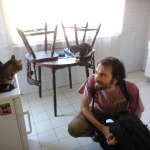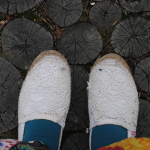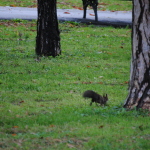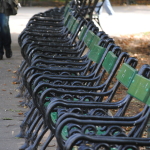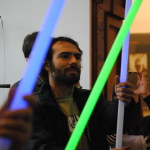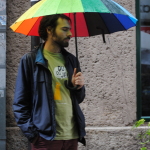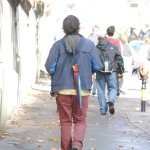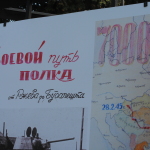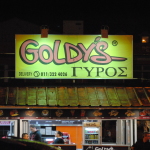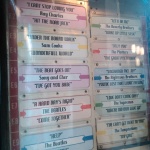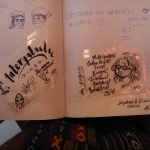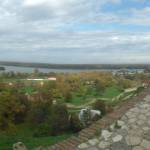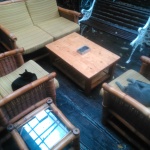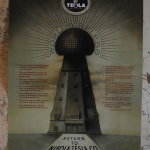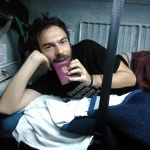 Περί της καταγωγής των σημερινών Ελλήνων by Jakob Philipp Fallmerayer
Περί της καταγωγής των σημερινών Ελλήνων by Jakob Philipp Fallmerayer
My rating: 5 of 5 stars
Ανακάλυψα αυτό το βιβλίο σκαλίζοντας την επιφάνεια των απύθμενων βαθών της βιβλιοθήκης της μάνας μου. Γενικά αποφεύγω να το κάνω γιατί είναι σαν να κοιτάζεις τον ήλιο κατάματα: δύσκολο να ψάξεις μέσα σε τόση πολλή και τόσο καλή πληροφορία και να μην χαωθείς. Εκείνη τη μέρα όμως ένιωθα τυχερός, όπως όταν πατάω την δεύτερη επιλογή στο Google, κάτι το οποίο και στις δύο περιπτώσεις δεν κάνω συχνά.
Εν πάσει περιπτώσει, η μάνα μου έμαθε για τον Φάλμεραϋερ όταν πήγε στην Γερμανία, πριν την πρώτη μετάφραση του βιβλίου στα ελληνικά το 1984, δηλαδή περισσότερα από 150 χρόνια μετά τη συγγραφή του. Ήταν όταν άρχισε να ανακαλύπτει την «εναλλακτική», λιγότερο εξευγενισμένη, πολύ πιο ενδιαφέρουσα και πολύ πιο ανθρώπινη εκδοχή της ιστορία της χώρας μας και των κατοίκων της, μια ιστορία πιο αληθοφανής σχετικά με το ποιοι ήταν, ή δεν ήταν, οι πρόγονοι μας. Περίπου όταν έφτασα στην ίδια ηλικία αρχισα να την ανακαλύπτω κι εγώ.
Χρόνια τώρα μου λέει κάθε φορά με έναν θαυμασμό στα μάτια της ίδιο με τον δικό μου τώρα πως το χωριό απ’το οποίο καταγόταν ο παππούς Αθανασόπουλος, κάπου κοντά στα Καλάβρυτα, λεγόταν τον παλιό καιρό Κόκοβα. Αυτό ήταν πριν μετονομαστεί στο πιο ελληνικό Κλειτορία. Την ίδια τύχη είχαν πολλά–περισσότερα απ’όσα φανταζόμαστε εσείς κι εγώ–τοπωνύμια στην Ελλάδα, των οποίων τα σλαβικά ονόματα δεν ηχούσαν καλά στα καθαρευουσιάνικα, αρχαιολατρικά αυτιά των Ελλήνων του προπερασμένου αιώνα. Δεν νομίζω ότι αυτοί οι κύριοι αναρωτήθηκαν ποτέ ποιος πρωτοέμεινε στην Κόκοβα, που σήμαινε «κότα» σε κάποια μεσαιωνική σλάβικη γλώσσα, ή αν οι κάτοικοι του χωριού είχαν παραμείνει ως τότε Σλάβοι.
Πώς και δεν ξέρουμε περισσότερα για την κατάλυση της ηπειρώτικης Ελλάδας απ’τους Σλάβους τον 6ο αιώνα; Πώς είναι δυνατόν να νομίζουμε σοβαρά ότι έχουμε ως επι το πλείστον αρχαιοελληνικό αίμα, ή τουλάχιστον να το νομίζουν αυτό πολλοί νεοέλληνες; Πώς είναι δυνατόν να υποτιμούμε τόσο ξεδιάντροπα την βαθιά ιστορία του τόπου μας και να την αναγάγουμε σε μερικούς κιτς αφορισμούς στην καλύτερη των περιπτώσεων; Μα θα μου πείτε, τι περίμενα; Είναι γνωστό ότι γενικότερα οι άνθρωποι δεν φημιζόμαστε για τις ικανότητες μας να μπορούμε να μάθουμε απ’το παρελθόν, ή ακόμα και να μπορούμε να το κοιτάξουμε και να το αναλογιστούμε λαμβάνοντας υπ’όψη τα δικά μας προσωπικά φίλτρα αλλά και αυτά της εποχής και της κυρίαρχης κουλτούρας. Ελάχιστους ξενίζει ότι όπου και να πας, και ανάλογα το πού είσαι, θα ακούσεις μια διαφορετική εκδοχή για το ποιος είναι ο αρχαιότερος λαός στον κόσμο. Μου θυμίζει κάτι Αυστραλούς ερευνητές που λένε πως οι αρχαιότεροι προγονοί μας δεν ξεκίνησαν από την Αφρική, όπως εικάζει η πιο δημοφιλής θεωρία σήμερα, αλλά από την… ναι, θα το πάρει το πόταμι, απ’την Αυστραλία. Από ένα σημείο και μετά δεν έχει καν σημασία ποιος έχει δίκιο, αλλά ότι τους περισσότερους τους παρακινεί η ανάγκη να είναι αυτοί ο εκλεκτός λαός και όχι άλλος.
Για να επιστρέψουμε στο βιβλίο: χωρίς αμφιβολία είναι ένα σημαντικό πόνημα το οποίο πιστεύω θα έπρεπε να συζητηθεί περισσότερο στην σύγχρονη Ελλάδα απ’ότι έχει συμβεί μέχρι τώρα, απλά και μόνο γιατί παραθέτει σπάνιες πηγές που ρίχνουν λίγο περισσότερο φως στο ποιοι πραγματικά είμαστε και το τι σήμαινε το να είσαι Έλληνας την 2ης χιλιετία. Ο Φάλμεραϋερ έχει κατακριθεί πολύ (έλα δεν το πιστεύω!) αλλά ακόμα δεν έχω δει σοβαρά αντεπιχειρήματα, μόνο φασιστομπλόγκ όπως αυτό (δείτε και το σχόλιο μου κάτω κάτω, για να μην αναφέρω την περίφημη «έρευνα του DNA»… mein Gott) να τον κράζουν και να τον καταδικάζουν με την παραδοσιακή άλλωστε ταμπέλα-πασπαρτού του «ανθέλληνα».
Ανθέλληνας: χαρακτηρισμός ο οποίο σημαίνει, όπως έχω μάθει πια από την εμπειρία χρόνων, όλους αυτούς που συνωμοτούν για να μην επιτρέψουν στην αρχαία φυλή των Πελασγίων να κατακτήσουν τον κόσμο όπως θα συνέβαινε αν δεν υπήρχαν αυτοί για να μας σταματήσουν. Μπόνους πόντοι αν οι ανθέλληνες είναι και Εβραίοι, οι οποίοι, ω τι ειρωνεία, έχουν μια παρόμοια κοσμοθεωρία με τους εξτρέμ έλληνες η οποία πηγάζει μέσα από την ίδια την θρησκεία τους, αλλά τουλάχιστον η δική τους Judaism vs The World πεμπτουσία ύπαρξης δικαιολογείται από τους διωγμούς τους που χάνονται στα βάθη των αιώνων. Ή μήπως διώκονταν γιατί πάντα θεωρούσαν τον εαυτό τους «εκλεκτό»; Παρακαλώ εισάγετε ρητό για αυγά και κότες και ποιος έκανε ποιον.
Αλλά φυσικά: οτιδήποτε σκάει την εθνική ψευτοπερηφάνια όπως τα μυτερά νύχια σκάνε ένα μπαλόνι, δεν μπορεί να εξεταστεί σοβαρά από όσους έχουν πιστέψει τυφλά στον μύθο της δικής τους εξοχότητας. Είμαι σίγουρος ότι ελάχιστοι απ’όσους έχουν γνώμη για το Περί της καταγωγής των σημερινών Ελλήνων έχουν ιδέα τι ακριβώς γράφει και ποια είναι τα επιχειρήματα που περιέχονται μέσα του. Ούτε το 1830 ήξεραν, όταν στον δρόμο έκραζαν τον Φάλμεραϋερ χωρίς να έχουν διαβάσει το βιβλίο καθώς δεν υπήρχε μετάφραση και κανείς δεν καταδεχόταν να την γράψει για 150 χρόνια, ούτε τώρα.
Η κριτική κατα του Φάλμεραϋερ την οποία δέχομαι πάντως είναι ότι ήταν καθεστωτικός μές την αντικαθεστωτικότητα του αντιφιλελληνισμού του. Με άλλα λόγια, παρ’όλο που ο φιλελληνισμός ήταν πολύ τρέντυ για την πολιτική διανόηση της εποχής, ο Φάλμεραϋερ ήταν συντηρητικός «αυτοκρατορικός» και κατα των επαναστάσεων. Ήταν υποστηρικτής του Όθωνα (η τελευταία παράγραφος του βιβλίου εξυμνεί τον πρώτο βασσιλιά της Ελλάδας μάλλον επειδή ήταν Βαυαρός, και ο Φάλμεραϋερ έκρινε ότι μόνο ένας Γερμανός θα είχε τα προσόντα για μια τόσο σοβαρή και υψηλού κύρους δουλειά) και γενικότερα περισσότερο με τον Μέτερνιχ και λιγότερο με τον Καποδίστρια, αν με πιάνετε. Αλλά τα πολιτικά του πιστεύω δεν θα έπρεπε να επηρεάζουν το πώς εμείς βλέπουμε και αξιολογούμε την εγκυρότητα της έρευνας του. Έστω ότι ήταν ανθέλληνας, λοιπόν, ό,τι κι αν αυτό σημαίνει. Τι έχουμε να πούμε για τις παραπομπές του, για την επιχειρηματολογία του; Αν μη τι άλλο, ο τύπος έκανε σοβαρή δουλειά για την εποχή του και κοιτώντας την καθαρά λογικά, την πιστεύω. Ειμαι σίγουρος ότι υπάρχουν ανακρίβειες στο έργο αλλά δεν έχει πολλή σημασία: καμία ανακρίβεια στα στοιχεία του δεν θα επαρκούσε για να ανατρέψει ολόκληρο του το επιχείρημα.
Ήδη έχω γράψει πολλά αλλά θα μπορούσα να γράψω άλλα τόσα κι άλλα τόσα γι’αυτό το θέμα. Ίσως το βλέπω πιο καθαρά γιατί, όντας μισός αυστραλός, δεν περιορίζομαι από την «καθαρότητα» του ελληνικού αίματος, την ίδια καθαρότητα βλέμματος η οποία από άλλους πολύ πιο «καθαρούς» από μένα ερμηνεύεται ως έλλειψη πατριωτισμού. Νομίζω ότι αυτό το βιβλίο, αν και δεν αξίζει 5 αστεράκια ως πόνημα, είναι πολύ σημαντικό για την Ελλάδα του σήμερα. Μέσα σε λίγες προτάσεις μπορεί να χτυπήσει απίστευτα πολλά νεύρα, και πιστεύω ακράδαντα ότι τέτοια είναι τα έργα που ακριβώς πρέπει να διαβάζονται και να συζητιούνται περισσότερο από τα υπόλοιπα που απλά συμφωνούν με όσα είναι κοινώς αποδεκτά. Κι όποιος αντέξει.
Θέλω να μάθω την ιστορία της Κόκοβας, στην τελική, όχι της Κλειτορίας.
View all my reviews



